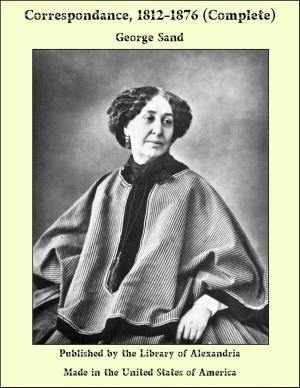The Great American Pie Company
Nonfiction, Religion & Spirituality, New Age, History, Fiction & Literature| Author: | Ellis Parker Butler | ISBN: | 9781465594600 |
| Publisher: | Library of Alexandria | Publication: | March 8, 2015 |
| Imprint: | Language: | English |
| Author: | Ellis Parker Butler |
| ISBN: | 9781465594600 |
| Publisher: | Library of Alexandria |
| Publication: | March 8, 2015 |
| Imprint: | |
| Language: | English |
If you take a pie and cut it in two, the track of your knife will represent the course of Mud River through the town of Gloning, and that part of the pie to the left of your knife will be the East Side, while the part to the right will be the West Side. Away out on the edge of the pie, where the town fritters away into the fields and shanties on the East Side, dwells Mrs. Deacon, and a fatter, better-natured creature never trod the crust of the earth or made the crust of a pie. Being in reduced circumstances, owing to the inability of Mr. Deacon to appreciate the beneficial effects of work, Mrs. Deacon turned her famous baking ability to account, and in a small way began selling her excellent homemade pies to those who liked a superior article. In time Mrs. Deacon established a considerable trade among the people of Gloning, and Mr. Deacon was wrested from his customary seat on the back steps to make daily delivery trips with the Deacon home-made pies. Ephraim Deacon was a deep thinker and philosopher. He was above his environment, or at least he felt so, and while waiting for opportunity to approach and give his talents full vent he scorned labor. So he sat around a good deal, and jawed a good deal, and smoked. But if you will return to your plate of Gloning you will see on the pie, far over on the West Side, where the scallops lap over the edge of the plate, a little spot that is burned a bit too brown. This is the home of Mrs. Phineas Doolittle, as base and servile an imitator as ever infringed on another person's monopoly. For, seeing and hearing of the success of Mrs. Deacon's pies, Mrs. Doolittle put a few extra pieces of hickory in her stove, got out her rolling-pin, and became a competitor, even to making Mr. Doolittle deliver her pies. The Deacon pies had sold readily at ten cents; three for a quarter. The Doolittle pie entered the field at eight cents; three for twenty cents. Mrs. Deacon stood this as long as possible, and then she decided to stand it no longer—unless she had to. "Eph, you good-for-nothin' lazy animal," she remarked to her husband one morning, as she started him on his rounds, "if you was a man, I'd send you over to talk to that Doolittle woman; but you ain't, so it ain't no use sendin' you. But if you meet up with that lazy, good-for-nothin' husband of hers, you give him a piece o' my mind, an' let him know what I think o' them what comes stealin' away my business, an' breakin' down prices, which I don't wonder at, her pies not bein' in the same class as mine, as everybody knows. If you was any good, you'd mash his head in for him, just to show her what I think of them. But there! Like as not, if you do catch up with him, you two will sit an' gossip like two old grannies, which is all you are good for, either of you."
If you take a pie and cut it in two, the track of your knife will represent the course of Mud River through the town of Gloning, and that part of the pie to the left of your knife will be the East Side, while the part to the right will be the West Side. Away out on the edge of the pie, where the town fritters away into the fields and shanties on the East Side, dwells Mrs. Deacon, and a fatter, better-natured creature never trod the crust of the earth or made the crust of a pie. Being in reduced circumstances, owing to the inability of Mr. Deacon to appreciate the beneficial effects of work, Mrs. Deacon turned her famous baking ability to account, and in a small way began selling her excellent homemade pies to those who liked a superior article. In time Mrs. Deacon established a considerable trade among the people of Gloning, and Mr. Deacon was wrested from his customary seat on the back steps to make daily delivery trips with the Deacon home-made pies. Ephraim Deacon was a deep thinker and philosopher. He was above his environment, or at least he felt so, and while waiting for opportunity to approach and give his talents full vent he scorned labor. So he sat around a good deal, and jawed a good deal, and smoked. But if you will return to your plate of Gloning you will see on the pie, far over on the West Side, where the scallops lap over the edge of the plate, a little spot that is burned a bit too brown. This is the home of Mrs. Phineas Doolittle, as base and servile an imitator as ever infringed on another person's monopoly. For, seeing and hearing of the success of Mrs. Deacon's pies, Mrs. Doolittle put a few extra pieces of hickory in her stove, got out her rolling-pin, and became a competitor, even to making Mr. Doolittle deliver her pies. The Deacon pies had sold readily at ten cents; three for a quarter. The Doolittle pie entered the field at eight cents; three for twenty cents. Mrs. Deacon stood this as long as possible, and then she decided to stand it no longer—unless she had to. "Eph, you good-for-nothin' lazy animal," she remarked to her husband one morning, as she started him on his rounds, "if you was a man, I'd send you over to talk to that Doolittle woman; but you ain't, so it ain't no use sendin' you. But if you meet up with that lazy, good-for-nothin' husband of hers, you give him a piece o' my mind, an' let him know what I think o' them what comes stealin' away my business, an' breakin' down prices, which I don't wonder at, her pies not bein' in the same class as mine, as everybody knows. If you was any good, you'd mash his head in for him, just to show her what I think of them. But there! Like as not, if you do catch up with him, you two will sit an' gossip like two old grannies, which is all you are good for, either of you."















